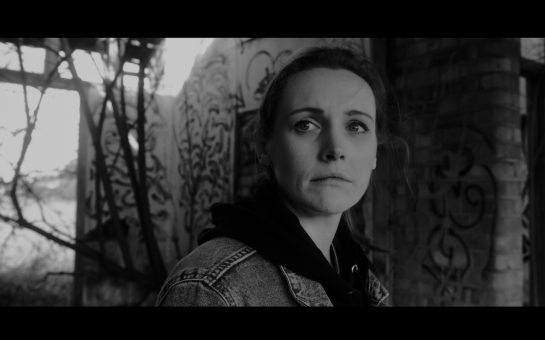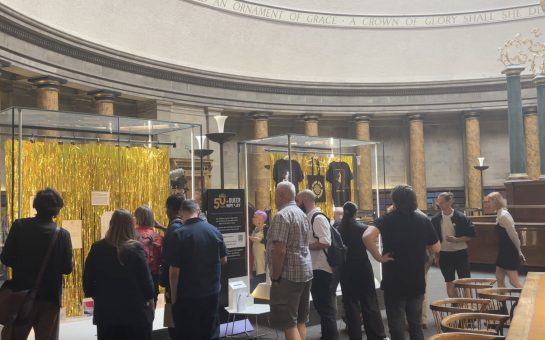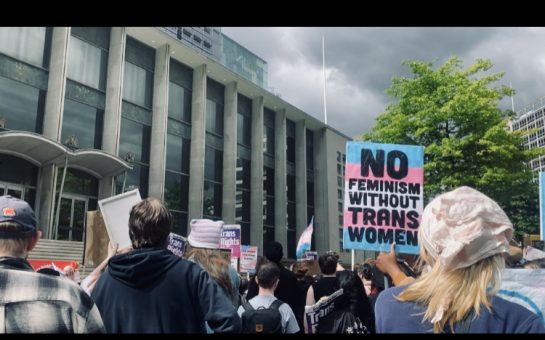To celebrate LGBT History Month, MM talk to LGBT figures from across Greater Manchester about their experiences of coming out and what progress they think the city still has to make towards equality.
Today, we talk to Tom Hayes who is councillor for Oxford City – but originally hails from Salford.
Tom is also national secretary for LGBT Labour, a socialist society affiliated with the Labour party who campaign for further steps for LGBT equality.
How old were you when you first realised you were L/G/B or T?
I must have been eleven years old, new to high school, when I first realised that I was gay. Growing up in an Irish Catholic family and going to a Roman Catholic school in the years before Queer as Folk exploded on our screens, I kept it to myself. Others sensed that I was different, even if they hadn’t worked out why that was. But, thankfully, I was never bullied.
I could kick a football reasonably well and my male friends were the most popular in school. My female friends had already become the very embodiment of a strong Northern woman and nobody, teachers twice their age included, messed with them. I was protected!
Could you tell us your ‘coming out’ story?
I came out much later than most people did back then, partly because I studied in my home city and lived at home. It was only when I went off to do postgraduate study and met a boy with nice eyes and enough of a resemblance to my adolescent crush James Van Der Beek that I decided to come out to my friends. That said, I didn’t do too great a job of that with some people. This summer, I spent a couple of weeks driving around the U.S. with one of my closest friends.
A very ginger, very straight Irish man, he pulled me up for never having actually said to him, “I’m gay”. Apparently I’d just turned up to the pub one time years ago with my then-boyfriend and expected him to get the hint. It was a lesson that the people in your life need to hear the words as much as you need to say them.
Although I’d deliberately taken a trip home to come out to my parents, I didn’t get the chance to. I fluffed it the first night and spent hours from midnight until 6am fretting about how to tell them and organising my very, very large iTunes library. I finally dozed off only to wake an hour later to my mum sitting on the edge of my bed. Naked in bed with sunlight literally blasting through my thin curtains, feeling extremely exposed, I heard her ask the words I’d never expected to hear slip from her lips: “are you *big pause* are you gay?” And I said, “well, it depends on what you mean by gay”. To this day I don’t know how I came up with such a bobbins answer. Being a strong Northern woman herself, my mum got it out of me.
The next year wasn’t the easiest and I went a long time without talking to my parents. But, things got better, get better, and are great now. And all these years on I still have a well organised iTunes library.
Great to join @OUSU_Pres to encourage students dropped off the register to get back on for #GE2015! @BiteTheBallot pic.twitter.com/tdKo9k9OX4
— Tom Hayes (@CllrTomHayes) February 3, 2015
From coming out to now, what are lessons you have learnt about yourself with regards to you and your sexuality?
I think I’ve learned things about myself and my sexuality precisely because I’m open about my sexuality. It’s people’s reactions, whether they’re your mum’s, your dad’s, or that of the uncle you see at weddings and christenings and funerals who’s spare with words but uses them to ask about your life and your job and your boyfriend, and whether you’ll have a wedding for him to dress up and badly sing along to Build Me Up Buttercup.
I’ve learned that people are tolerant and sometimes very lovely, and that there’s every reason for you to be the same. We’re all different, some are gay, some aren’t, but we’re all people.
What are the biggest challenges still to overcome in the UK for the LGBT community?
We’ve come such a long way since my teenage years. Section 28 is gone, you can openly serve in the army, you can marry! There are newly married same-sex couples holding hands on couches watching Cucumber, whereas years earlier they were nervously watching Queer as Folk in their bedrooms, remote control in hand to quickly change the channel if a parent walked in without knocking.
But, Stonewall research shows that there’s a lot more to do, especially in our classrooms. Moments from childhood linger forever, shaping the people we become. Nobody should have to be a scared little boy or girl, anxious about mannerisms and a voice that matter less than their learning and happiness.
That’s why I’m glad to see proposals this week for age-appropriate sex and relationships education in primary schools, including faith schools and academies, and training for teachers in how to tackle homophobic bullying.
And what about for the rest of the world?
It’s just not acceptable that the current international history of LGBT rights includes wrenchingly violent murder and injury. It was particularly disgusting that Russia hosted the Winter Olympics in Sochi last year. This is a country with a lot of good people, but its government has an appalling LGBT rights record.
It’s also disgusting that anti-gay Russia and Qatar will be the 2018 and 2022 hosts of the World Cup. How are we going to encourage LGBT athletes, broadcasters, and sports enthusiasts to live their lives openly in these countries during these tournaments, and generally for that matter, if we hold the biggest sporting events in countries where you have to choose between an airless closet and a prison cell (or worse)?
I’m pleased that a future Labour Government would have LGBT equality advocate Michael Cashman as an envoy for LGBT rights worldwide, putting the matter at the heart of our foreign policy.
What would you say to your young self or a young LGBT person with the knowledge you have now about coming out?
I’d say be true to yourself, embrace your own diversity and that of others – whatever its form – and most importantly, be happy, fall in love, and don’t let others define you. I’ll stop now before I begin to sound like that Baz Luhrmann song! Which I can find too easily in my perfectly catalogued iTunes library because I fretted about coming out.
How does being gay impact on your job/career?
I’m a city councillor in contact with a lot of different communities and people from all backgrounds, and I can honestly say that being gay has never impacted on my job or career.
I’ve never heard a bad word or had reason to feel offended or discriminated against. And I’m grateful to those before me who worked so hard and put up with so much to make it better for me.
Guys, don’t get envy. I went to the County *and* got to sit in the Vice Chair’s hotseat. Srsly http://t.co/clx7h9OVwu pic.twitter.com/DCEEwqAt9P
— Tom Hayes (@CllrTomHayes) December 23, 2014
What are your thoughts on Manchester’s LGBT scene? Is the Village still the heart of it in your mind?
I adore Manchester’s gay scene. It’s the best in the country precisely because the Village is its beating heart.
Small and compact, the Village can still feel huge. Whatever the bar you’re in, you’ll always see a friendly face, whether you know it or you’re about to get to know it. Manchester’s nearest rival, that there London, has so many scenes, all over the place, that it can be tough to bump into people and chat.
And Manchester generally, but the Village especially, is very inclusive: I love that we have people of all ages as regulars at the bars, people who’ll talk, get on, swop the time of day, and pass on learning. When you see the candelit vigil at the end of the Big Pride Weekend to remember those we’ve lost to HIV, it’s not the only time we remember.
Because we have people in the Village every day who have lived through that crisis in its worst moments and sadly lost the loves of their lives – friends and partners alike – that part of what it has been to be gay – one of the darkest moment in our shared history – is at the centre of the scene, something important passed on as oral history, the lucky survivors talking to today’s new members, the Nathans of Manchester’s Village. That’s beautiful.
What makes Manchester a good place to live in for members of the LGBT community?
It’s not just that Manchester has always been on the cutting edge, out of step with the rest of the country because it’s so self-confidently bold and aggressively modern. It’s not just that being LGBT actually is very in keeping with a city which enjoys being different by being diverse.
It’s not even that you don’t have to wear a clown suit to fit into the achingly boringly normal, like in other places.
It’s that Manchester is the best place in the country to eat, sleep, work, love and be loved, lead the fullest and freest life, and to parrot Frank Gallagher, get on and have a party!



